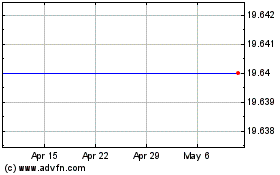Some CEOs Survive Mergers as Acquirers Look to Retain Top Talent
September 27 2016 - 1:30PM
Dow Jones News
By Joann S. Lublin
For LinkedIn Corp.'s Jeff Weiner, it pays to get acquired.
Microsoft Corp. is making extra efforts to keep him employed
after agreeing to buy the professional social network where Mr.
Weiner has been chief executive since 2008. He will collect a pay
package worth about $18 million next year -- and make at least $43
million over four years if he meets performance goals, regulatory
filings show. In 2015, Mr. Weiner received total compensation of
about $19.9 million, according to a LinkedIn proxy statement.
Under a $26.2 billion deal announced in June, Microsoft also
promised Mr. Weiner free rein to run LinkedIn as an independent
unit. LinkedIn is the biggest tech company to be offered
post-takeover autonomy in recent memory, industry watchers say.
More U.S. businesses are bolstering efforts to retain top
executives of acquired concerns because unwanted exits can doom a
takeover. Some offer these CEOs well-paid, important positions in
the combined enterprise. Certain companies decide who survives the
acquisition partly based on independent assessments of executives
at the buyer and the bought. Wal-Mart Stores Inc. was eager to keep
Marc Lore, founder of Jet.com Inc., after striking a $3.3 billion
deal for the web retailer this summer.
When the acquisition closed Sept. 19, Mr. Lore became CEO of
U.S. e-commerce for the retail giant, overseeing Walmart.com and
Jet.com, an unprofitable startup launched last year.
Similarly, Darius Adamczyk will take the helm of Honeywell
International Inc. next March -- nine years after he joined the
industrial conglomerate through its purchase of Metrologic
Instruments Inc., which he led. "I didn't think I would stay more
than a year," Mr. Adamczyk recalled.
Yahoo Inc. CEO Marissa Mayer has bought more than 50 startups
since 2012. About a fifth of her top deputies are former heads of
acquired startups. Among them is Adam Cahan, who developed a social
app IntoNow, says he remained partly because Yahoo pledged to keep
his old team intact for at least a year. Verizon Communications
Inc. recently committed to purchasing Yahoo's web assets.
Acquirers "are now more aware of the relationship between
effective integration of top management teams and merger success,"
said Jeffrey A. Krug, business school dean at Bloomsburg University
of Pennsylvania. Yet the task remains so tough that "many mergers
will continue to fail, " he said. Dr. Krug has studied executive
turnover rates involving thousands of U.S. takeovers since the
1970s.
On average, he said, companies lose a third of their executives
within the first two years of being purchased.
A different scenario unfolded at National Starch, which rival
Corn Products International Inc. bought in 2010. All 12 top
executives stayed until early 2013 at the producer of food
ingredients, now called Ingredion Inc. Six ex-National Starch
executives still work there. The day after then-Corn Products CEO
Ilene Gordon unveiled the proposed deal, she and her suburban
Chicago leadership team flew to New Jersey and dined with National
Starch counterparts at a restaurant near the company's headquarters
in Bridgewater, N.J. "We want you to stay because of your knowledge
and your technology know-how," Ms. Gordon recalled saying during
the meal. Ms. Gordon also vowed to build an entirely new company,
with a new name and the best of both cultures. Heeding anxious
questions from some National Starch executives, she agreed not to
relocate its 200 scientists to Chicago and instead deciding to
expand their New Jersey technology center.
"She wanted the best talent from both organizations," said Jim
P. Zallie, then CEO of National Starch. Ms. Gordon put him in
charge of the global specialties business, a new position at the
combined company. Compared with a decade ago, it is more common for
leaders at acquiring companies to get to know a target's management
on their turf, says Laura Miles, who runs the global M&A
practice for Bain & Co., a consultancy. The outreach shows "you
want to retain the best talent," she said.
Assessments of executives on each side of a deal also have
gained in popularity, according to providers such as executive
recruiters Egon Zehnder and consultants AlixPartners. Between 15%
and 20% of acquirers "take a very objective look at their culture
and their talent on both sides," compared with a mere 1% in 2006,
estimates Ted. C. Bililies, a managing partner at AlixPartners.
Two-way evaluations don't always result in equal distributions
of plum posts. Global Payments Inc. agreed to buy Heartland Payment
Systems Inc. late last year.
Global Payments soon asked consulting firm PwC to evaluate both
management teams, said Bob Carr, then Heartland's chief executive.
He already had decided to leave once the transaction closed.
Mr. Carr says the buyer chose only two of his eight direct
reports, one of whom spurned its offer. Global Payments and PwC
declined to comment.
Rejected Heartland executives walked away wealthy but unhappy,
Mr. Carr said. "They don't have a job to go to every day that they
loved."
Write to Joann S. Lublin at joann.lublin@wsj.com
(END) Dow Jones Newswires
September 27, 2016 13:15 ET (17:15 GMT)
Copyright (c) 2016 Dow Jones & Company, Inc.
Altaba (NASDAQ:AABA)
Historical Stock Chart
From Mar 2024 to Apr 2024

Altaba (NASDAQ:AABA)
Historical Stock Chart
From Apr 2023 to Apr 2024
